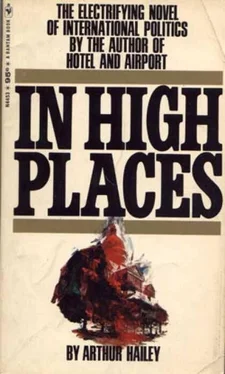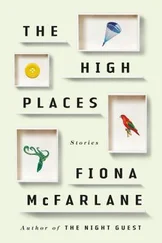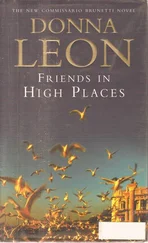Then he remembered the President's words: There is no time. By reckoning, reason, logic, we've used it all… If we do have time it will be by God's good grace… I'm praying for the gift of the year… The very best for the children; their 'children yet to come…
He said decisively, 'There will be no postponement.'
'That's what I thought,' Lexington said quietly. He added, 'I suppose we should go in.'
The House of Commons was packed – not a vacant seat on the floor of the House, and every gallery full. Public, Press, diplomats, distinguished visitors were crammed in every inch of room. There was a stir as the Prime Minister, with Arthur Lexington behind, came in. The back-bench MP on the Government side, who had been speaking earlier, was winding up, his eye upon the clock, his orders from the party whips, explicit.
For the second time since earlier in the afternoon, James Bowden bowed to the Speaker of the House and took his seat. He was conscious of the multitude of eyes upon him. Soon, as press wires hummed and teletypes spewed out their urgent news, it would be the eyes of North America, even of the world.
Above him, in the diplomatic gallery, he could see the Soviet Ambassador, stiffly unsmiling; the US Ambassador, Phillip Angrove; the British High Commissioner; the ambassadors of France, West Germany, Italy, India, Japan, Israel… a dozen others. Reports would go, by telegraph and courier, to every major capital tonight.
There was a rustle in the Speaker's gallery as Margaret took the front row seat reserved for her. She looked down and, as their eyes met, smiled. Across the centre aisle, Bonar Deitz was attentive, waiting. Hunched behind Deitz was the crippled Arnold Geaney, his bright eyes gleaming. On the Government side, to Howden's right, Adrian Nesbitson stared stiffly ahead, a touch of colour in his cheeks, his shoulders squared.
Respectfully, a page boy placed a note upon the Prime Minister's desk. From Milly Freedeman, it read: "The Joint Session of Congress is assembled, and the President has entered the Capitol. He was delayed by cheering crowds on Pennsylvania Avenue, but will begin his speech on time.'
Delayed by cheering crowds. James Howden felt a surge of envy. The President's strength was firm and growing, his own ebbing away.
And yet… No cause was ever lost until the final hour. If he were going down, he would make a fight until the end. Six cabinet ministers were not the nation, and he would take his case to the people, as he had before. Perhaps, after all, he could survive and win. A sense of force and confidence spread over him. Ten seconds to four. The House of Commons stilled. There were commonplaces here at times: dullness and mediocrity and petty bickerings. But the House could rise, when needed, to a sense of great occasion. It had done so now. This was a moment which history would remember, whatever years for history were left.
In a way, Howden thought, we are a mirror of life itself: our weakness and our smallnesses; and yet, always beyond them, the heights which human beings can attain. Freedom was a height, in whatever form and by whichever measure. If, to sustain the greater part, a little must be lost, it was a sacrifice worth making.
As best he could, he would find words to point the way.
In the Peace Tower above, the quarters chimed. Now, majestically, the great Bourdon Bell announced the hour. The Speaker intoned: 'The Prime Minister.' Deliberately, not knowing what the future held, he rose to address the House.

***















